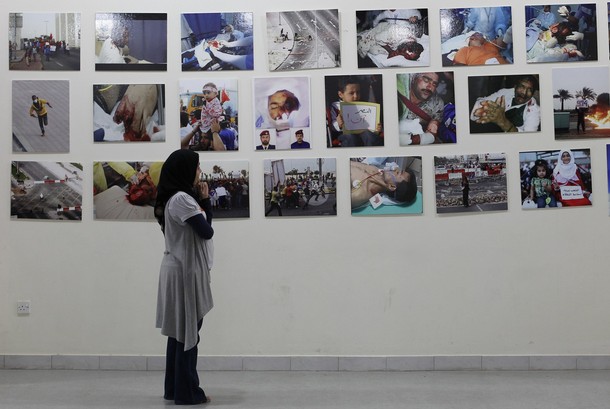Voice of America - August 17, 2011

A Bahrain woman looks at pictures of victims of the February 14 uprising, displayed at an exhibition during a gathering held by the Al Fateh Youth Union in Isa Town, south of Manama, Bahrain, July 28, 2011
It has been six months since anti-government protests inspired by the successful uprisings in Tunisia and Egypt first erupted in Bahrain. And as in Egypt, many Bahrainis used social media Internet sites such as Facebook to help organize the protests. The Bahraini government is now using Facebook, too - apparently to track down and arrest the protesters.
It is questionable whether the Arab Spring ever would have amounted to much without social media on the Internet. In most cases, as more and more frustrated youths turned to their computers to express their discontent, an increasing number of people left their homes to publicly demand change.
The term “Facebook Revolution” was coined after the successful ouster of President Hosni Mubarak in Egypt. And in Bahrain, the social networking site also played a role in encouraging people to participate in the nation’s “Day of Rage” protests on February 14, and in the pro-democracy demonstrations that followed.
Recent Comments